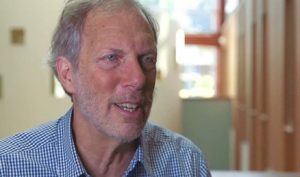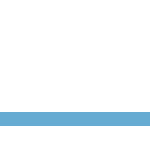Fiona Murphy ~ Remember Baghdad. Arabic Version. With Introduction From Edwin Shuker
Five families from the Jewish community look back on a scarcely imaginable time in Baghdad – Iraq was booming, it was pleasure-seeking, and there was inter-communal trust. Iraq was once one of the most diverse places on earth, more tolerant of its minorities than any European nation.
Today, after decades of war and instability, Iraq is a very different place. In spite of the danger, North Londoner Edwin Shuker decides to return to the country he loved. We follow him back to Baghdad. He wants to buy a house in Iraq so that he can say “the Jews have not all gone”. He wants to plant a seed of hope for the future.
Website: https://rememberbaghdad.com/
From the Director’s Statement:
‘The lives of my parents’ families closed down as the British Empire shattered: my father’s community was thrown out of Ireland and my mother’s fled Jamaica. I grew up in London, conscious that people suffer for the crimes of generations long gone.
So when I was between films and was offered a job cataloguing an extraordinary archive of early home movies belonging to an Iraqi-Jewish family, I responded vividly to the news that the Jews of Iraq did well under the British, and paid for it. They had committed no crimes, and unlike mine, nor had their community.
The end of the British Empire was not the only strand that bound their stories together with mine. My mother’s family was ethnically Jewish. And while that was where the historical similarities ended, the smiling faces in the archive and the stark fact that only five Jews remain in Iraq today, awakened my own sense of loss.
At first I just wanted to convey the pain of losing your home. It seemed important, now, right now, to push back at the narrowness of our news, dominated by discussion of economic migrants, desperate refugees and the difficulties of integrating immigrants. The older stories were laments about the pain of exile: “It’s a Long Long Way to Tipperary”, and “By the rivers of Babylon, there we sat down and wept”. I wanted to show that that migrants travel with heavy hearts, give them a voice, and bring back the world that was lost. I knew this must be my next film.’
Eva Ludemann ~ Arabier & Seculier. De opmars van afvallige moslims in de Arabische wereld
Historicus en journalist Eva Ludemann heeft een boek geschreven over de afvallige moslim in de Arabische wereld. Zij onderzocht in welke mate jonge mensen in de Arabische wereld gebroken hebben met de islam en of de extremistische bewegingen invloed hebben gehad op hun besluit de islam te verlaten. Uit het jaarlijks gehouden onderzoek van ‘Arab Youth Survey’ uit 2019 vindt 66% dat religieuze instituten moeten worden hervormd omdat ze een te grote invloed hebben. De helft van de jongeren vindt dat religie de ontwikkeling van de Arabische wereld belemmert en dat religie tegelijkertijd aan invloed verliest in de regio.
Ludemann stelt de vraag hoe is het om ex-moslim te zijn in de Arabische wereld, je los te wortelen van het systeem dat is doortrokken van geloof.
Sinds de Arabische Lente en vooral ook als reactie op het fundamentalistische geweld van groeperingen als ISIS, stelt een groeiende groep jongeren op sociale media vragen over de islam. Zolang ze niet online gaan, zijn ze aangewezen op verouderde, starre, religieuze teksten. Ze willen zelf kunnen bepalen waarin ze wel en niet geloven en hoe ze hun geloof belijden.Voor Arabische jongeren is internet wat de boekdrukkunst ooit was voor de christelijke wereld: ze hebben toegang gekregen tot informatie die tot voor kort niet beschikbaar was. Op sociale media debatteren ze over nieuwe grondwetten en pluriformiteit. Openlijk durft echter niemand te zeggen dat ze ex-moslim zijn. En degenen die wel openlijk hun geloof hebben afgelegd zijn gevlucht naar Europa, de VS of Canada.
Maar de Arabische regimes zijn als de dood voor hun opmars en daarom hebben ze blasfemie en afvalligheid in veel gevallen voor de wet gelijkgesteld aan terrorisme. Maar de geest is uit de fles. Zoals wij in het Westen zijn ontkerkelijkt, zo zijn ook steeds meer Arabische jongeren langzaam maar zeker aan het ‘ontmoskeeën’- met dank aan internet, aldus Ludemann.
Edwin Shuker ~ “We Dreamt Of Being Expelled.” Being Jewish In Iraq
Growing up Jewish in Baghdad Edwin Shuker remembers one thing very clearly: the desire to run away and lead a normal life with his family. The road to London was far from easy…
Joseph Sassoon Semah, Henk Wijnen en Renée Hartog over de rol van de kunstenaar, vrijheid en engagement
In het kader van On Friendship/(Collateral Damage) III – The Third GaLUT; Baghdad, Jerusalem, Amsterdam was op 25 november 2019 vanuit Werkgebouw het Veem Amsterdam: Een gesprek tussen Joseph Sassoon Semah en Henk Wijnen over de rol van de kunstenaar, vrijheid en engagement, onder leiding van Renée Hartog, cultureel diplomaat.
We Are Facing Economic Collapse On Top Of A Pandemic. What We Do Now Matters.
As the COVID-19 virus spreads, the U.S. economy has begun to crumble like a house of cards.
The sudden collapse of the economy is revealing how the “great economy” that Donald Trump has been boasting about on Twitter for the past three years was in fact a mirage caused by wild Wall Street rallies, and boosted by Trump’s massive tax cuts and deregulatory efforts contrast which rolled back all kinds of environmental standards with total disregard for the impact on public health and the climate crisis.
As the shutdowns orchestrated to stop the spread of the novel coronavirus create financial ruin for individuals and businesses across the country, the economy is “teetering on collapse,” points out Robert Pollin, distinguished professor of economics and co-director of the Political Economy Research Institute at the University of Massachusetts at Amherst, in this exclusive interview for Truthout.
But Pollin also argues that — with the right decisions — we have the means not only to rescue the complete collapse of the economy, but also to move in the direction of a just, equitable and sustainable socioeconomic order. The following transcript has been lightly edited for length and clarity.
C.J. Polychroniou: Can you give a succinct summary of the myths and realities of Trump’s economy from the day he took office and up until the outbreak of COVID-19?
Robert Pollin: Throughout his presidency, until basically last week, Trump’s mantra on the economy is that conditions have never, ever been better. This was always a ludicrous assertion. But as distinct from many other of Trump’s assertions, this one was based on at least some slivers of evidence, with the two critical slivers being the stock market and the unemployment rate. It is true, first of all that, as of last July, the U.S. stock market had reached an historic high, with the S&P 500 index exceeding 3,000 for the first time. It is also true that the official unemployment rate had hit a record low of 3.5 percent as of February.According to the Bureau of Labor Statistics, the last time the official U.S. unemployment rate was below 3.5 percent was 1953.
But the stock market rise reflected, more than anything, a combination of (1) companies deliberately inflating their own stock prices through buying back their shares on the open market; and (2) the reinforcement, with Trump, of the upward distribution of income and wealth that has proceeded now for 40 years under neoliberalism. For example, with Trump’s signature across-the-board tax cuts in 2017, the benefits for the poorest 20 percent of the population amounted to an average of $100 while the richest 1 percent received $55,000. Over the next decade, the poorest 20 percent would then see their taxes go up while the richest 1 percent would benefit from further cuts.
With the historically low official unemployment rate, if we add up the people who were working part-time but wanted full-time jobs as well as those who have temporarily given up looking for work, plus we account for the share of people who have dropped out of the labor force following the 2007-09 Great Recession, we are now at a more realistic unemployment rate of nearly 10 percent. This is about 16 million people, roughly equal to the entire populations of New York City, Los Angeles and Chicago. On top of this, wages had only begun to start inching up with the unemployment rate at its historically low level. This is after 40 years of most working people experiencing falling or stagnating real wages.
In short, our current economy was never anything close to the halcyon image projected by Trump until this week. In any case, all of those rosy descriptions are now a thing of the past.
Read more
World Jewish Congress – “We disappeared.” The story Of Jewish Refugees From The Middle East And North Africa
The stories of the people who witnessed the end of Jewish life in their countries of origin, from Iraq to Libya, and were forced to start from scratch: the Jewish refugees from the Middle East and North Africa. Jewish presence in Arab countries long predates Islam and the Arab conquest of the Middle East and goes back to Biblical times. According to official statistics, over 850,000 Jews were forced to leave their homes in Arab countries between 1948 and the early 1970s. Today, there are fewer than 7,000 Jews left.
Watch the testimonies here: http://ow.ly/EdeIN




